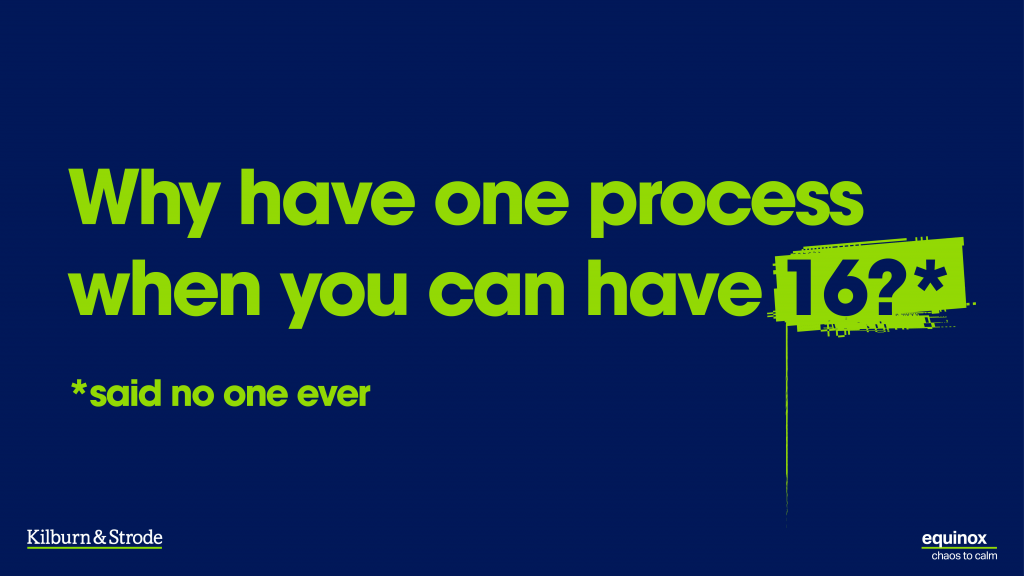I’ve always had a love/hate relationship with my star sign. Whether or not you’re a ‘believer’, characteristics supposedly dictated by celestial movements can hang over you. As a Leo, I live in fear of knowing nods whenever I verge towards bossiness. I’m sometimes a little too self-deprecating in my efforts to avoid arrogance. But one trait I’ve always tried hard to align myself with, both personally and professionally, is bravery.
I had the privilege of working with Bodyform when it beat heavy hitters like Nike to win Brave Brand of the Year (if you haven’t seen the brand’s latest work, Womb Stories, I’d strongly recommend giving it a watch). In the five years I worked with Bodyform I saw perceptions change in a way no one thought was possible. Bravery was what gave the brand the ability to truly shift the dial and to – dare I say it – start a movement. It infused every decision – from product demonstrations (goodbye blue liquid!) to gaining the confidence to move media spend from traditional TV to social.
Another of my clients, Ecover, taught me the power of transparency. Ecover has always been able to publicly challenge its competitors because its commitment to better business practices is more than skin deep. It’s a brand that has bravery woven into its very existence. From its 2001 Steal Our Formula out-of-home campaign to its new Fertilise the Future Fund, Ecover dares to be different.
I made the move to the world of internal communication because I believe bravery is built from the inside out. It’s more than just a marketing message – it’s about establishing a vision for a better future and doing all it takes to make that vision a reality.
I won’t repeat the established narratives about IC ‘finding its voice’ or ‘gaining confidence’ because I’m not sure how productive they are. But what I will say is COVID-19 has changed our world in a way none of us could’ve predicted. We’ve seen incredible feats of courage; from this moving and vulnerable colleague update from Marriott International and CEO Arne Sorenson, to Airbnb’s refreshing empathetic approach to redundancy. We’ve seen leaders deliver messages they’ve never wanted to deliver with unexpected honesty. These messages struck a chord with the IC community, in part because they highlighted what a lot of us have been saying all along – audiences want to be treated like adults, and they want their leaders to get real.
We all know that behind every leader is an army of strategists, analysts and communicators helping to shape the future of their organisations and the working lives of their colleagues. These people rarely enjoy public adoration. In many cases, they’re working around the clock to tackle what has become a unique, long-term crisis. It takes bravery to push for what you know to be right and tackle daily issues head-on. Let’s be honest, some days it takes bravery to simply open up your laptop. I’ve been amazed and humbled by the work of so many of my peers.
So, what does the future hold for the world of comms? I think it’s fair to say none of us can pretend to be in a position to answer that question. The pandemic has thrown our BAU out the window, and that’s not necessarily a bad thing. Through bravery I’m hopeful we can build back better.
In the meantime, here are my five tips for bringing more bravery into your comms:
#1 Seek the truth
It always starts with insight. Have the courage to ask the questions you’re scared to ask. Look the answers square in the face and spend time considering them without judgement.
#2 Tell the truth
A step that’s all-too-often ignored. And no, I don’t simply mean sharing the more positive stats from the annual employee survey. Be honest about where you’ve fallen down in the past, where you want to get to, and the challenges you’re facing.
#3 Think holistically
Siloed thinking kills bravery. If there’s one thing I’ve learned from our work with KPMG International, it’s that organisations structured around a desired outcome see far greater results. It may not be in your power to break down every barrier, but you’d be surprised how much you can achieve with a good idea and the drive to see it through.
#4 Have fun
As David Ogilvy famously said, ‘the best ideas come as jokes’. Sometimes we feel it’s part of our jobs to take ourselves seriously. It’s not. Creating time and space for creativity is not a frivolity – it’s an essential part of any thinking process.
#5 Dream big
Or, in other words, know what you’re working towards. Use it as your guiding light. It can be tricky to focus on a long-term vision when there are so many daily tactical requirements. I’d strongly recommend building a content framework and carrying out meaningful measurement – both will help you to see how each small shift moves you closer towards your goal.
I’ll leave you with some of AB’s recent work for Kilburn & Strode, the patent and trademark attorneys. Kilburn & Strode came to us with a fairly typical challenge – it was introducing a new piece of job management software and needed colleagues to buy-in and engage with product demonstrations and training.
What I love about Kilburn & Strode is its commitment to transparency – the team were totally open to us ‘telling it like it is’. We developed a campaign that poked fun at old processes to bring the benefits of the new ones to life. For me, this one ticks all the boxes:

I’d love to hear your examples of brave communications. Tweet @abthinks or find us on LinkedIn to join the conversation.




